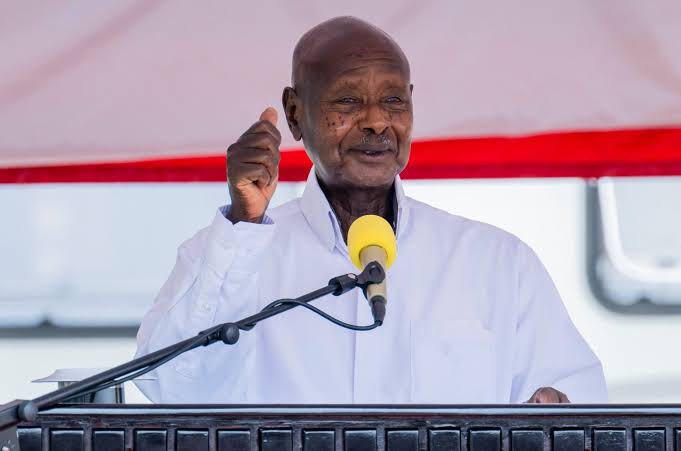President Yoweri Museveni will run for another term in Uganda’s upcoming general elections set for January 2026, a senior official from the ruling National Resistance Movement (NRM) confirmed this week. The announcement ends months of speculation over the long-serving leader’s political future and signals his intent to extend his presidency well beyond four decades.
Although widely expected to seek reelection, this is the first formal declaration from within the NRM. Museveni, 80, has held power since 1986, making him one of Africa’s longest-reigning leaders. His tenure has been marked by significant political and constitutional changes, including two amendments to the national charter—one in 2005 to remove term limits, and another in 2017 that scrapped the presidential age cap. Both changes paved the way for Museveni’s continued eligibility.
In a video shared late Monday by the state broadcaster UBC on social media platform X, NRM electoral commission chairperson Tanga Odoi revealed that Museveni will collect nomination forms on June 28. These forms will officially express his intention to vie for two roles within the party: the chairmanship and, if approved, the presidential candidacy.
“The president will pick up expression-of-interest forms for two positions—chairperson of the party and, if granted the opportunity, presidential flag bearer,” Odoi stated.
The NRM is currently engaged in an internal vetting process to approve candidates ahead of the elections. Other political parties are also finalizing their nominees for both the presidency and legislative seats.
Museveni is expected to face strong opposition from Robert Kyagulanyi, better known as Bobi Wine—a pop star-turned-politician who emerged as a formidable challenger during the 2021 elections. Wine has already confirmed that he will contest again in 2026.
In the previous election, Kyagulanyi alleged widespread irregularities, including ballot stuffing and voter intimidation, and rejected the official results that declared Museveni the winner. International observers and human rights groups also raised concerns about the electoral process, citing restrictions on opposition activities and the use of security forces to suppress dissent.
Critics have long accused Museveni of entrenching his rule through state patronage and heavy-handed tactics, including the deployment of security agencies to silence opponents. Nonetheless, Museveni maintains that his extended leadership reflects the will of the Ugandan people. He argues that stability, economic growth, and national development under his administration have earned him continued public support.
As the 2026 elections approach, Uganda is once again preparing for a high-stakes contest between the deeply entrenched ruling party and an energized opposition that continues to challenge the political status quo.



